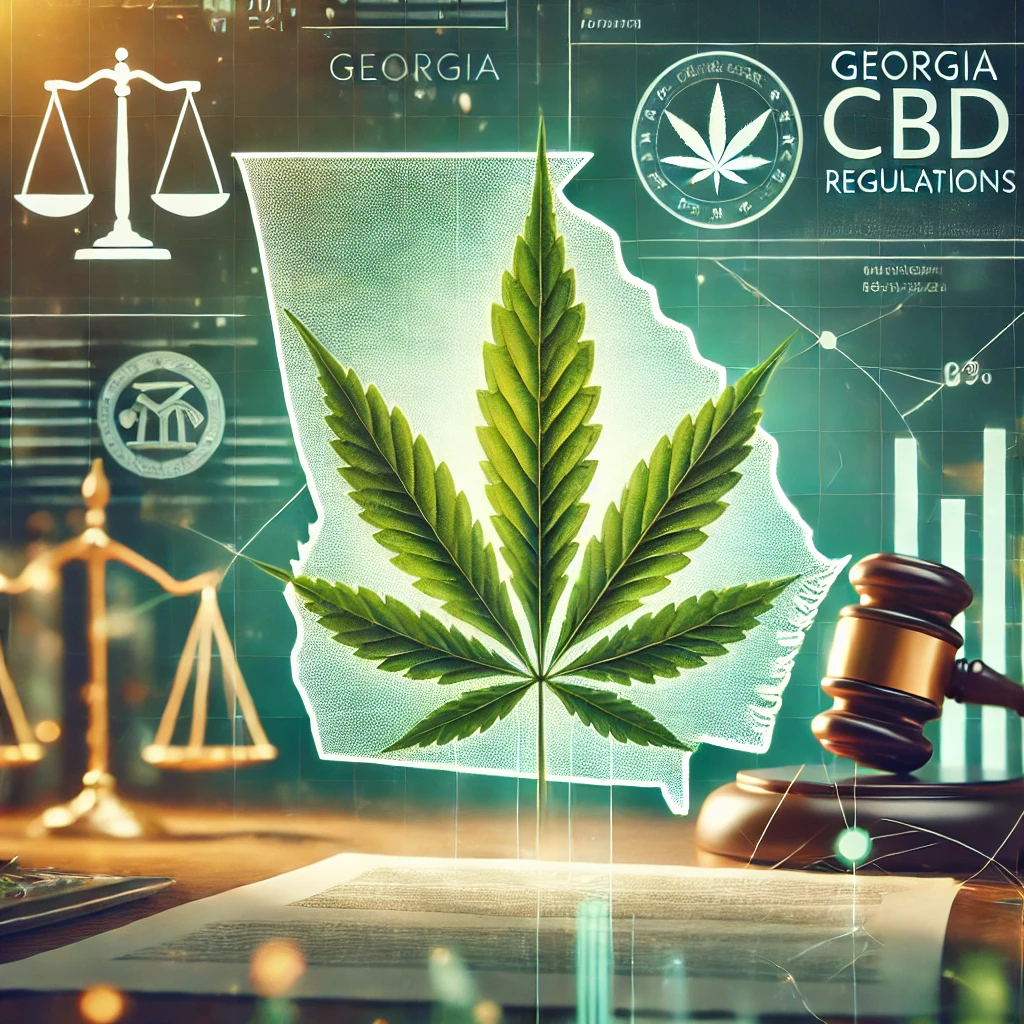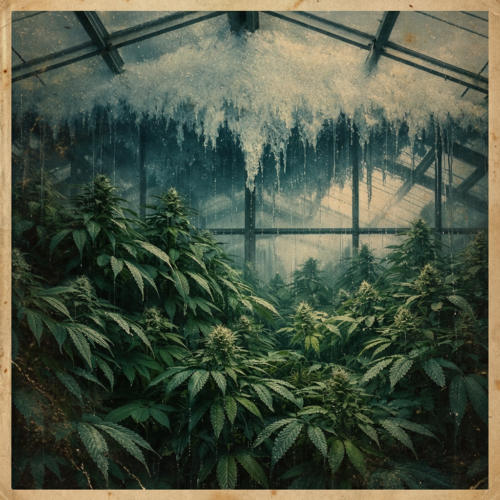New Georgia CBD rules, which cap Delta-9 THC levels, aim to enhance consumer safety but pose significant challenges and opportunities for the state’s hemp industry.
Georgia’s hemp industry has been thrust into the spotlight with the state’s latest regulatory update, which imposes strict limits on the concentration of Delta-9 THC in CBD products.
These newly enacted regulations are set to reshape the industry landscape, igniting a mix of optimism and concern among stakeholders who are now navigating an increasingly complex market.
Decoding Georgia’s New CBD Regulations
The Georgia Department of Agriculture has introduced stringent new rules that cap Delta-9 THC levels in all hemp-derived CBD products to 0.3% on a dry weight basis. This critical update mirrors the federal guidelines established by the 2018 Farm Bill, which legalized hemp and its derivatives, provided they adhere to the 0.3% Delta-9 THC threshold.
However, some worry this alignment with federal standards could be a harbinger of potential shifts for local producers.
For many in the industry, these regulations mark a pivotal moment. The 0.3% Delta-9 THC limit, though in step with federal laws, may necessitate significant changes in product formulation.
The state’s decision to adopt this cap universally across all hemp-derived products—including edibles, tinctures, topicals, and beverages—means that producers will now need to meticulously monitor their processes to ensure compliance.
This effort might involve costly adjustments and, in some cases, the reformulation of products that previously did not meet these stringent requirements.
The Ripple Effects on Georgia’s CBD Market
The implications of Georgia’s new regulations extend far beyond mere compliance. The state’s burgeoning CBD market, which has seen a steady rise in consumer interest and product diversity, now faces a critical juncture.
For producers, the need to reformulate products to meet the 0.3% Delta-9 THC cap could drive up production costs, potentially impacting the availability and pricing of Georgia CBD offerings. This, in turn, might affect consumer access to the variety of products they’ve come to expect.
From an economic standpoint, these regulations introduce both challenges and opportunities. On the one hand, businesses may struggle with the financial burden of compliance, particularly smaller operations that lack the resources to easily adapt to the new rules.
On the other hand, the establishment of a more regulated market could bolster consumer confidence, leading to increased demand and potentially driving growth in the long term.
Balancing Health, Safety, and Therapeutic Potential
A central argument in favor of Georgia’s new regulations is the emphasis on consumer safety. The psychoactive properties of Delta-9 THC, while sought after in recreational cannabis products, are not always desirable in the context of CBD, which many consumers turn to for non-psychoactive therapeutic benefits. By capping Delta-9 THC levels, the state aims to provide a safer, more predictable experience for those using CBD for health and wellness purposes.
However, the new rules have sparked debate within the industry. Some experts caution that by limiting Delta-9 THC, Georgia might inadvertently diminish the therapeutic potential of CBD products. Delta-9 THC, even in minimal amounts, plays a crucial role in the entourage effect—a phenomenon where various cannabinoids and terpenes work synergistically to enhance the overall therapeutic impact of cannabis.
This nuanced interplay between cannabinoids means that reducing Delta-9 THC could alter the efficacy of CBD products, potentially limiting their benefits for consumers seeking relief from conditions like chronic pain, anxiety, or inflammation.
Navigating the Legal and Economic Landscape
Georgia’s evolving legal landscape presents a complex challenge for businesses operating within the state. The new regulations add another layer of complexity to an already intricate web of state and federal laws governing hemp and CBD products. Companies must now navigate these waters with heightened diligence to avoid penalties and ensure their products remain on store shelves.
The economic impact of these regulations is still unfolding. For some businesses, the cost of compliance could be a significant hurdle, particularly for smaller producers who may find it difficult to absorb the additional expenses associated with product reformulation and testing.
Industry Reactions and Future Prospects
Reactions within the hemp industry to new Georgia CBD regulations have been mixed. While some producers view the rules as a necessary step toward ensuring product quality and protecting consumer safety, others see them as overly restrictive.
The concern is that these regulations could stifle innovation and hinder the growth of the industry, particularly in a market as dynamic as CBD. Advocacy groups are pushing for a balanced approach that addresses both consumer safety and the need for industry innovation.
They argue that more research is essential to fully understand the implications of these regulations and to develop guidelines that support both safety and growth. The call for a more nuanced regulatory framework reflects a broader concern that the current rules may not adequately consider the full spectrum of CBD’s potential benefits.
The Road Ahead for Georgia’s Hemp Industry
New Georgia CBD regulations represent a significant shift in the state’s approach to hemp-derived products. By capping Delta-9 THC levels, the state is aligning itself with federal guidelines while also attempting to carve out a safer and more predictable market for consumers.
However, the long-term impact of these changes on the industry remains to be seen. As the market adapts, stakeholders must remain vigilant, staying informed and engaged in ongoing discussions about the future of CBD in Georgia.
The evolving regulatory landscape will undoubtedly require ongoing dialogue and collaboration between industry leaders, lawmakers, and consumers. The challenge lies in striking the right balance between safeguarding public health and allowing the industry to thrive.

For now, businesses are diving into compliance strategies, and they’re diving deep; stories of successful adaptation and costly setbacks are likely to emerge as companies strive to meet these new requirements while maintaining their competitive edge.
the focus must be on navigating these new rules while continuing to advocate for a regulatory environment that fosters innovation and supports the full therapeutic potential of CBD products.
***
Trap Culture is the ultimate destination for cannabis enthusiasts who want to experience the best of Arizona’s cannabis culture. Whether you are looking for the hottest cannabis-friendly events, the latest news on debunking negative myths about marijuana, trends in the industry and exclusive, limited-edition products from the top brands in the market, Trap Culture has you covered. Visit our website to learn more about our events, our blog, and our store. Follow us on social media to stay updated on the latest news and promotions. Join the Trap Culture family and experience the most immersive and engaging cannabis-friendly social events in Arizona.


